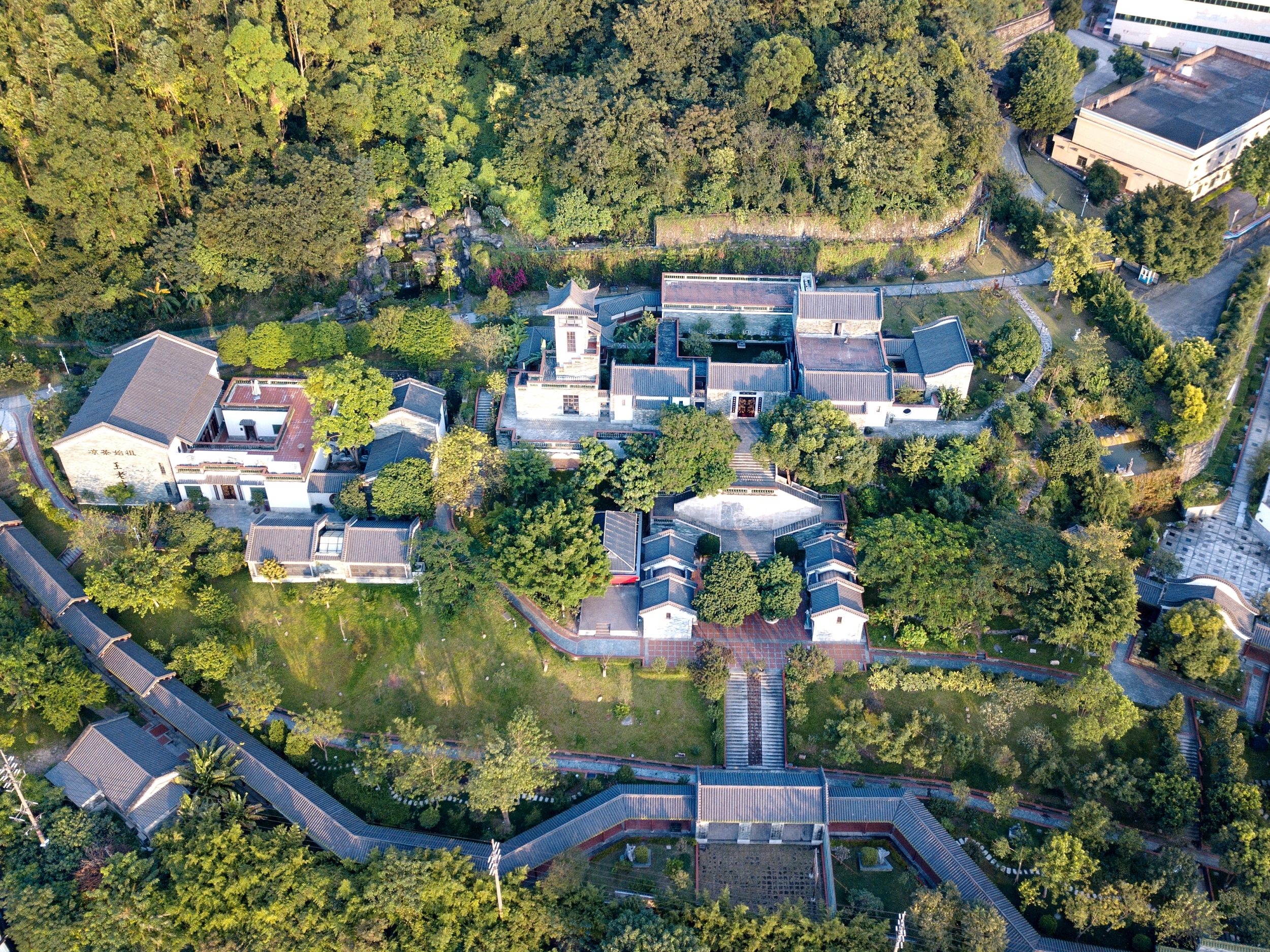TCM Industry Gets Tech Boost

An aerial view of the Guangzhou Shennong Cottage Museum of Traditional Chinese Medicine. (PHOTO: VCG)
By SU Jingjing & CHEN Chunyou
The 2023 Government Work Report emphasized the promotion and inheritance of traditional Chinese medicine (TCM) and its innovative development in an effort to benefit people's livelihoods.
Guangdong province, known for its strong tradition in developing the TCM industry, has achieved remarkable success in industrial scale and competitiveness, ranking among the top in China.
Guangzhou Pharmaceutical Holdings Limited (GPHL), a large production base of Chinese patent medicine in Guangzhou city, is committed to applying standardized, intelligent and digital technologies to the TCM industry, so as to promote its high-quality development.
Tech vitalizes industry
Through research in key intelligent technologies, GPHL developed equipment to optimize medicinal herb processing, including software for streamlined management of the entire production process.
GPHL's TCM Intelligent Service Center began operation in 2017. The center has cooperated with more than 50 public hospitals to help process medicinal herbs and provide other related services for patients.
"Every medication order delivered to the intelligent herb-boiling platform has a tracking code, through which the platform can supervise the whole working process, and patients can also check the status of their orders through apps, just like online shopping," said Zhao Jinghua, a staff member at the center. He added that the intelligent service center can also educate buyers on the effects and uses of the medicine.
In April, GPHL began construction on the second phase of the intelligent service center, which is expected to be put into operation in July. "By then, the process of filling prescriptions, weighing, soaking and boiling medicinal herbs will be completed by a robotic arm," added Zhao.
Industry boosts local development
To promote the standardized planting of medicinal herbs, GPHL also cooperates with neighboring regions that are rich in related resources.
GPHL has established a cooperative mechanism with two counties, Meiyuan and Dabu, located in Meizhou city. The counties are known for their favorable conditions for cultivating platostoma palustre, a traditional Chinese herb. GPHL donated seedlings to the two regions for cultivation, and once harvested, the company will purchase the herbs from the farmers.
"This cooperative model increases the income of each farmer by about 20,000 RMB per year, and local farmers are very motivated. We have held a lot of tech training on growing seedlings to help farmers improve the quality of the herbs," said Xie Zhiwei, head of Dabu Lyuxian Agriculture and Forestry Development Co., Ltd.
"Revitalizing the TCM industry does not solely mean driving the development of the Chinese medicinal herb industry itself, as it also should take related industrial chains into consideration," said Li Chuyuan, chairman of GPHL.
"We hope to establish a TCM rural revitalization alliance, and form a systematic TCM industrial system by combing the cultivation and processing of medicinal herbs with rural revitalization, aiming to promote the high-quality development of the TCM industry while realizing the standardization of TCM planting and production," added Li.






